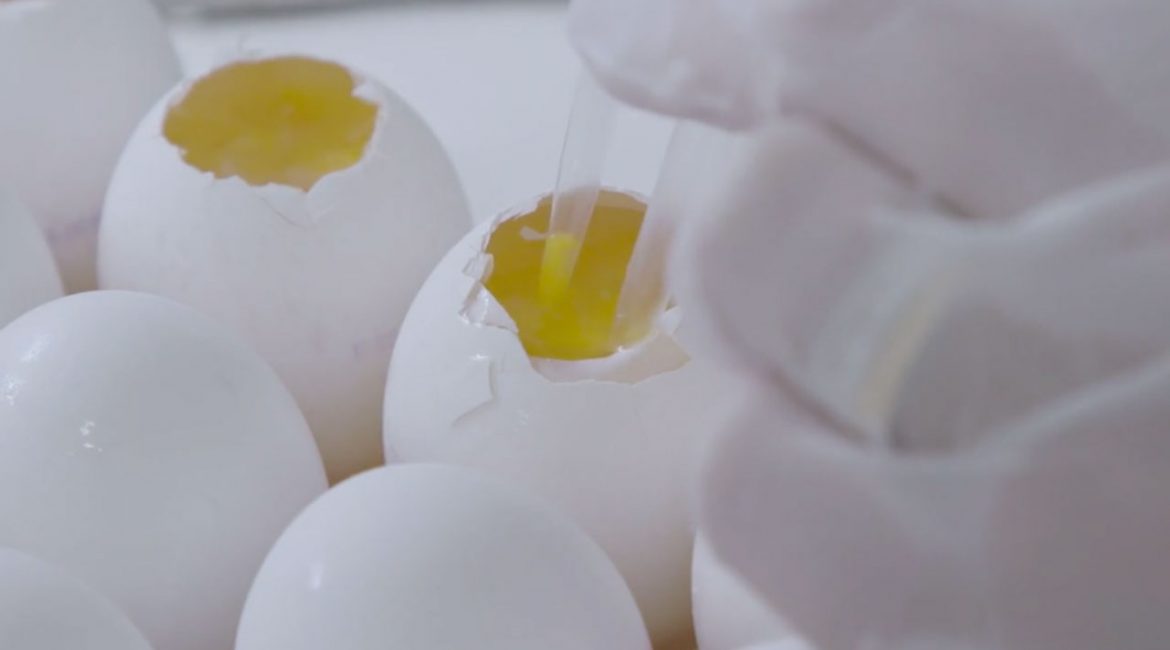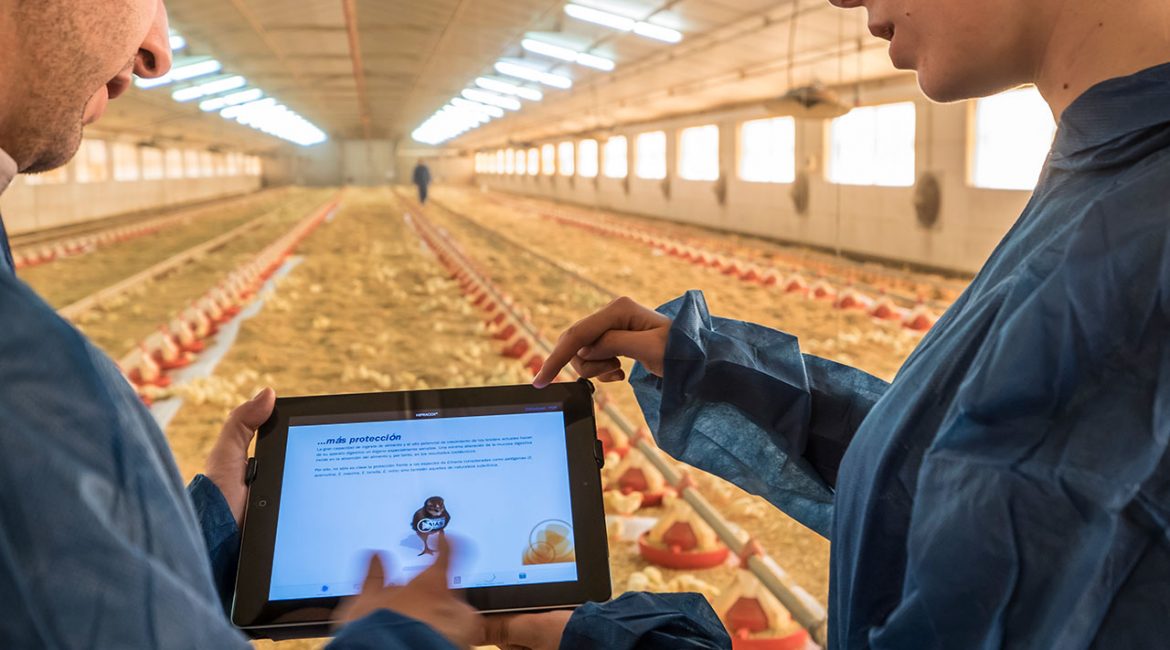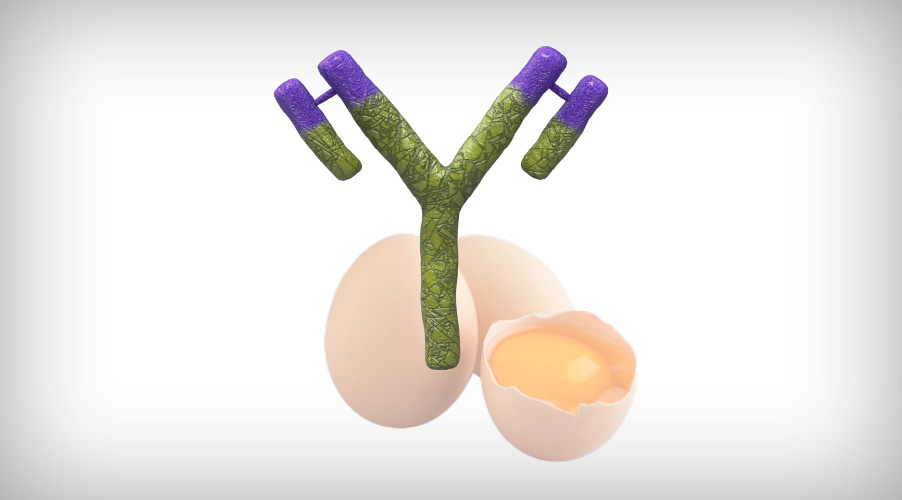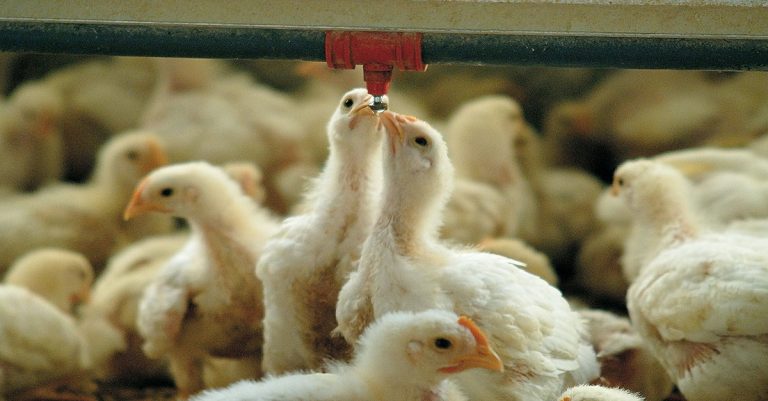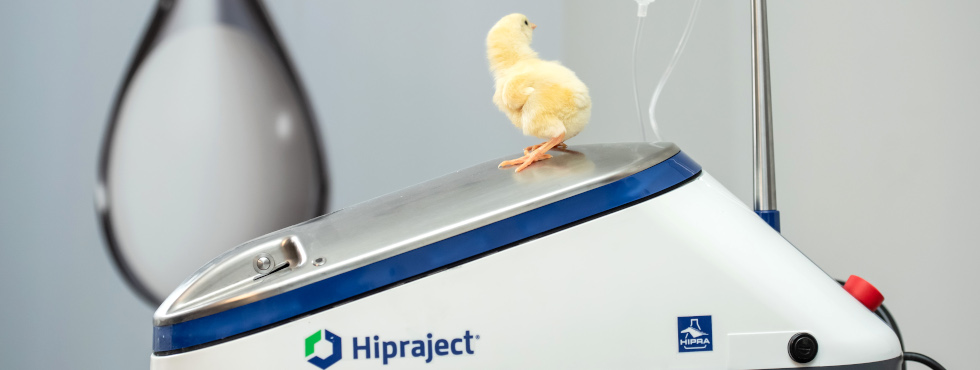Immune-complex vaccines are considered as an intelligent tool in the prevention of infectious bursal disease (IBD). These vaccines offer the efficacy of a live virus, but with the advantage of not being neutralized by maternally derived antibodies and an adapted onset of immunity to the protective needs of each chick.
How do IBDV immune complex vaccine viruses arrive at the bursa of Fabricius on the optimal day?
The IBDV immune-complex vaccines were developed in the late 1990s with the aim of having an IBD vaccine that could be given in the hatchery and that could provide protection regardless of the maternal antibody level of the chicks.
Improvements in Gumboro disease with immune complex vaccines
GUMBOHATCH® is a new immune complex vaccine against Gumboro disease developed by HIPRA. This new immune complex vaccine has introduced a different formulation (IgY of egg origin) and control parameters (free IgY detection and neutralization control) to ensure the complete coating of the IBDV virus.
Immune complex vaccines against Gumboro: Is there room for improvement?
Immune complex vaccines against Gumboro disease were developed in the late 1990s with the aim of having a biological product that could be administered in a hatchery providing protection and safety, regardless of the level of maternal antibodies in chicks.
Gumboro disease: 4 key aspects for controlling IBD in your farm
Gumboro disease is a highly contagious disease with great resistance in the environment. Vaccination using drinking water vaccines is one of the most established preventative methods globally.
A better control of the vaccination process against IBDV is possible
Vaccination against IBDV in hatcheries has become a common practice in poultry since the 90’. The vaccination is performed in-ovo or by subcutaneous injection on the hatch day before the chicks are being placed on farm within a potentially contaminated environment.

